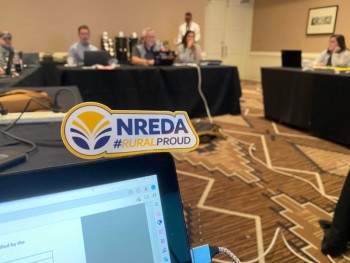Over the course of several days in Albuquerque, N.M. I met with a telecom engineering firm, a city broadband manager, a rural mayor, executives from rural electric systems, a public relations firm specializing in rural spaces, and an economic development director who is spearheading technology education training for rural students.
The National Rural Economic Developers Association (NREDA) brought these and about 250 other people together to discuss, learn, and share strategies for building economic strength for rural spaces. A combination of luck and good fortune landed me on the Board of NREDA; my organization, NTCA-The Rural Broadband Association, has a seat and I was selected to staff it several years ago.
Rural economies are often envisioned as some monolithic combination of agriculture, forestry, and mining. To be sure, these industries have strong roots in rural spaces and contribute mightily to their regional economies. But the U.S. Department of Agriculture Economics Research Service (ERS) reports that the greatest job growth in rural spaces is occurring in the retail and service industries.
Recent trends in telework promise even more diverse career representation for so-called “flyover” spaces. Local businesses are finding new equilibria as they emerge from the COVID-19 pandemic with dedicated and hybrid telework arrangements and “big city” firms across a range of industries are finding that their employees can work effectively and successively over the wires. In sum, the “work anywhere, from anywhere” paradigm is becoming rooted in the American work experience.
But there is more to be done. The ERS reports that rural manufacturing is keeping pace with urban manufacturing, including the incorporation of advanced manufacturing techniques except in areas where the educational level of the local workforce is low (NTCA’s Smart Rural Community program explored these issues in Rural Broadband and the Next Generation of American Jobs). Also, apparel and textile industries face ongoing threats by lower-cost production facilities overseas.
NTCA has championed collaboration among its broadband service provider members and post-secondary institutions to increase opportunities for telecom workforce training. A recent Issue Brief and our recently announced partnership with Northwood Technical College (Rice Lake, Wis.) illustrate these efforts. At the same time, we continue to identify the role of rural broadband providers in supporting advanced manufacturing and telework. Both will require not only experts in those respective fields, but also technicians, network engineers, software and application specialists, and cybersecurity experts to support all the sectors that are engaging broadband-enabled industries. These efforts call for active coordination among local schools and community-based broadband providers.
There is, of course, no “one size fits all” solution for rural communities. And, even within individual communities, leaders may discover that there is no silver bullet to strengthen local and regional economies. But there is silver buckshot. The dedicated focus to ensuring access to education, healthcare, and jobs (all of whose greater performance and opportunities are expanded by broadband) will surely pave a path toward increased viability and resilience.
Those efforts, combined in buckshot fashion, promise a strong future for rural spaces.


